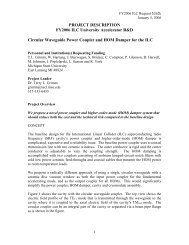order denying motions to suppress and dismiss - University of Illinois ...
order denying motions to suppress and dismiss - University of Illinois ...
order denying motions to suppress and dismiss - University of Illinois ...
- No tags were found...
You also want an ePaper? Increase the reach of your titles
YUMPU automatically turns print PDFs into web optimized ePapers that Google loves.
1<br />
2<br />
3<br />
4<br />
5<br />
6<br />
7<br />
8<br />
9<br />
10<br />
11<br />
12<br />
13<br />
14<br />
15<br />
16<br />
17<br />
18<br />
19<br />
20<br />
21<br />
22<br />
23<br />
24<br />
25<br />
26<br />
27<br />
28<br />
the overwhelming primary purpose <strong>of</strong> the aforementioned ruse was <strong>to</strong> assist the<br />
Operation Gold Seal task force with their investigation <strong>of</strong> what it believed was a<br />
“diploma mill” being operated out <strong>of</strong> Suite 8B. Suspected insurance fraud on the<br />
part <strong>of</strong> the Defendants was, at best, a very minor <strong>and</strong> secondary consideration.<br />
In <strong>order</strong> <strong>to</strong> warrant <strong>dismiss</strong>al on due process grounds, government<br />
misconduct must be “so grossly shocking <strong>and</strong> so outrageous as <strong>to</strong> violate the<br />
th<br />
universal sense <strong>of</strong> justice.” United States v. King, 200 F.3d 107, 1213 (9 Cir.<br />
1999). A defendant “must prove that the government’s conduct was ‘so excessive,<br />
flagrant, sc<strong>and</strong>alous, in<strong>to</strong>lerable, <strong>and</strong> <strong>of</strong>fensive as <strong>to</strong> violate due process.” United<br />
th<br />
States v. Edmonds, 103 F.3d 822, 825 (9 Cir. 1996), quoting United States v.<br />
th<br />
Garza-Juarez, 992 F.2d 896, 904 (9 Cir. 1993), cert. denied, 510 U.S. 1058<br />
(1994). The Ninth Circuit has found outrageous government conduct in instances<br />
where the government has engineered <strong>and</strong> directed the criminal enterprise from<br />
start <strong>to</strong> finish <strong>and</strong> where the police have been brutal, employing physical or<br />
psychological coercion against a defendant. U.S. v. Fern<strong>and</strong>ez, 388 F.3d 1199,<br />
th<br />
1238 (9 Cir. 2004). The Ninth Circuit has identified two remedies: 1) <strong>dismiss</strong>al<br />
<strong>of</strong> the indictment, which is drastic, disfavored, <strong>and</strong> thus used only in the most<br />
egregious cases; or 2) <strong>suppress</strong>ion at trial <strong>of</strong> evidence improperly obtained.<br />
th<br />
United States v. Haynes, 216 F.3d 789, 796 (9 Cir. 2000), cert. denied, 531 U.S.<br />
1078 (2001).<br />
The government <strong>and</strong> the Defendants have cited various cases for their<br />
respective positions, but <strong>to</strong> no great surprise, none <strong>of</strong> those cases present the<br />
unique factual circumstances present in the case at bar. In United States v. Bosse,<br />
th<br />
898 F.2d 113 (9 Cir. 1990), the defendant was a licensed semiau<strong>to</strong>matic firearms<br />
dealer <strong>and</strong> had an application pending for a state license <strong>to</strong> buy <strong>and</strong> sell au<strong>to</strong>matic<br />
machine guns. An agent <strong>of</strong> the California Department <strong>of</strong> Justice inspected the<br />
defendant’s home <strong>and</strong> surrounding premises with defendant’s consent as part <strong>of</strong><br />
ORDER DENYING MOTIONS<br />
TO SUPPRESS AND DISMISS - 14


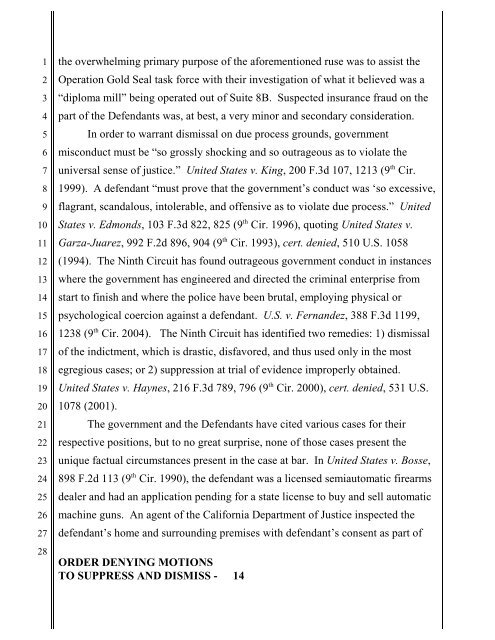
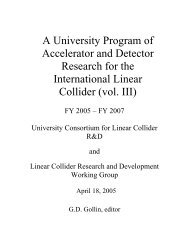
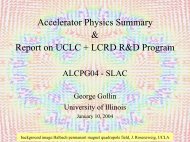
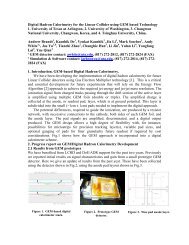
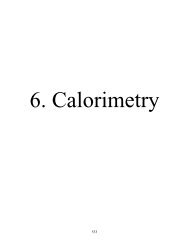
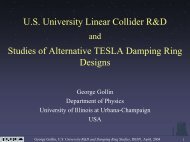
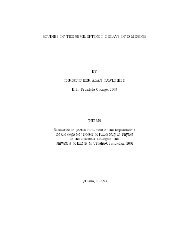
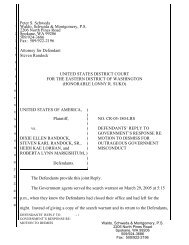
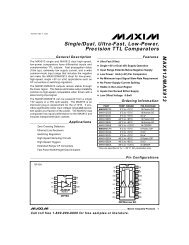
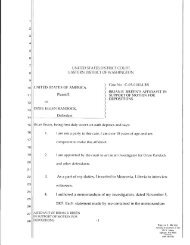
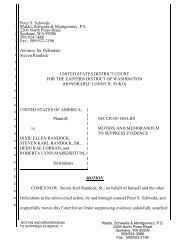
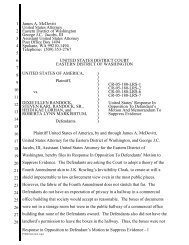
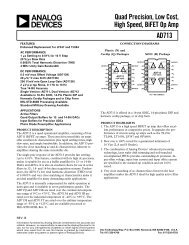
![Linear Collider [Accelerator] Overview](https://img.yumpu.com/33867705/1/190x143/linear-collider-accelerator-overview.jpg?quality=85)
